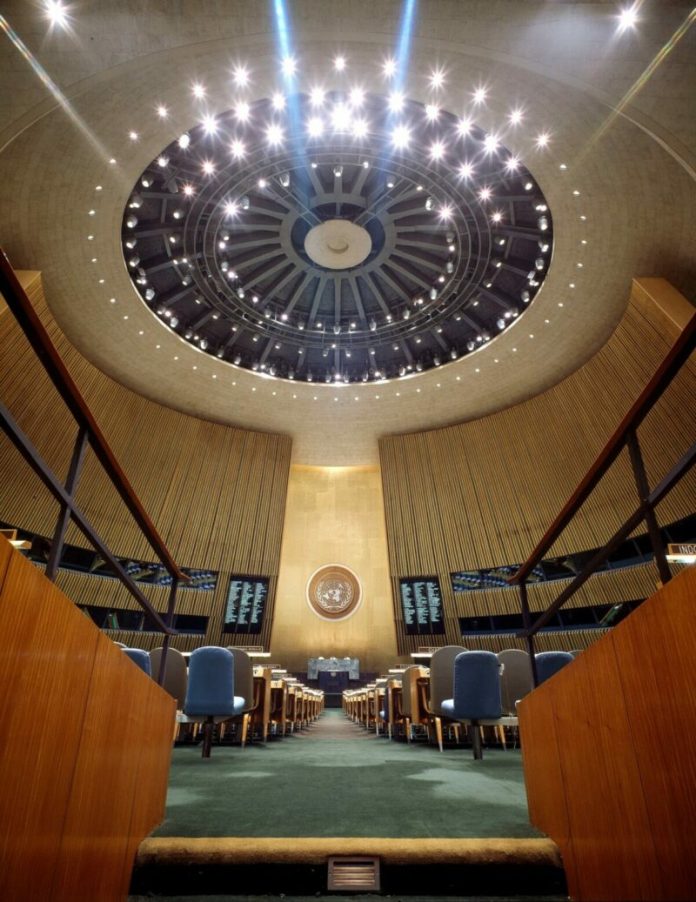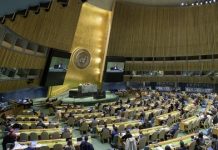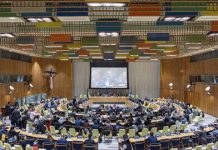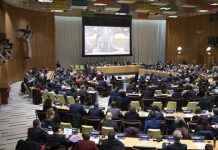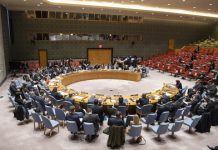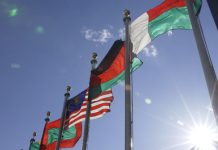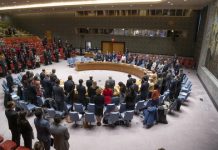Humanitarian conditions are “extremely serious,” UN Deputy Special Envoy for Syria Najat Rochdi told the Security Council on Wednesday.
There are over 16 million people in need of aid with hundreds of thousands displaced, according to the UN humanitarian coordination office (OCHA).
Ms. Rochdi began her briefing by welcoming the removal of UN sanctions against President Ahmed al-Sharaa and Interior Minister Anas Khattab but urged the repeal of further secondary sanctions against third parties doing business with Syria.
“These are a key impediment to enabling reconstruction and reviving the devastated Syrian economy,” she said.
She highlighted that Israeli military incursions into Syria continue, “in grave violation of Syria’s sovereignty and of international law,” and pressed for adherence to the 1974 Disengagement Agreement, brokered by the UN, which created a buffer zone and separation line between Syrian and Israeli forces.
New social contract
Ms. Rochdi noted that the first trial is underway following deadly attacks against the Alawite community in Latakia and Tartus in March, when over 1,000 people were killed in clashes, adding that the UN follows with “real concern” reports of abductions and enforced disappearances.
She appealed for transparency to ensure fair representation of all communities and women in the People’s Assembly – a new transitional legislative body – where one-third of the 210 seats are awaiting appointment by the president.
The drafting of a permanent constitution is a “foundational task” for the next stages of the political transition, she stressed.
“The act of defining a new social contract among Syrians must be a source of peace and unity.”
A ‘path forward’
Speaking on behalf of relief chief Tom Fletcher, OCHA financing and outreach Director Lisa Doughten said the ceasefire in southern Syria is holding, although sporadic incidents are still reported.
Violent sectarian clashes broke out around Sweida between Druze militias and tribal fighters, reportedly driven by kidnappings and tit-for-tat attacks.
Over 180,000 people remain displaced there and neighbouring governorates.
The UN continues to prioritise humanitarian response in those areas, working with national authorities and affected communities to provide basic services.
OCHA has reached 357,000 people per month, sending over 1,300 aid trucks and working with a range of partners.
Ms. Doughten asked for continued engagement from the international community, funding and large-scale investment for reconstruction.
“The people of Syria do not want to rely on emergency aid,” she said.
Reconstruction needs are enormous but recent developments like the easing of sanctions and interest in investment “provide a path forward.”
Source of original article: United Nations (news.un.org). Photo credit: UN. The content of this article does not necessarily reflect the views or opinion of Global Diaspora News (www.globaldiasporanews.net).
To submit your press release: (https://www.globaldiasporanews.com/pr).
To advertise on Global Diaspora News: (www.globaldiasporanews.com/ads).
Sign up to Global Diaspora News newsletter (https://www.globaldiasporanews.com/newsletter/) to start receiving updates and opportunities directly in your email inbox for free.


